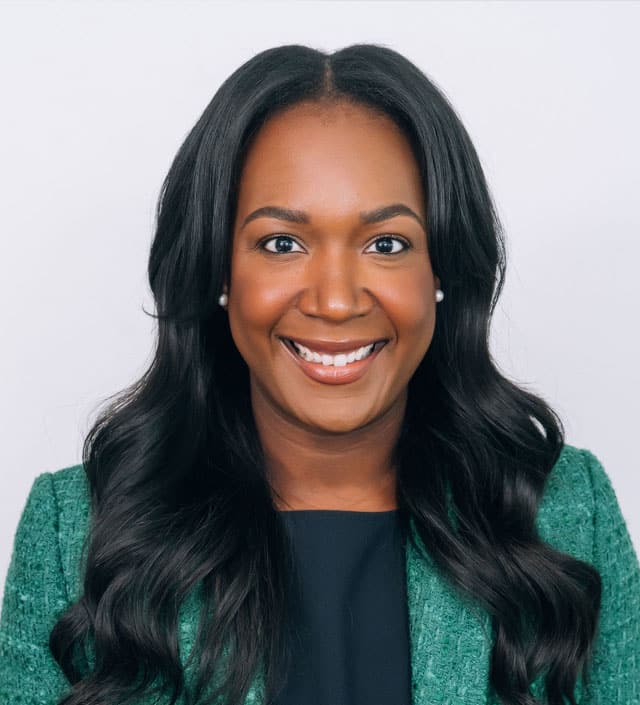The importance of identifying your ideal client is paramount for the growth and scalability of your financial planning and wealth management business. As an independent financial advisor, you have spent your career organically growing your business through various methods that may include referrals, educational programs, or targeted marketing campaigns within your geographical area. Your experiences may have taught you that some techniques to connect with your targeted audience are better than others.
A straightforward and efficient process to attract clients who resonate with your values and would benefit highly from working with an advisor such as yourself does exist. You are unique and your process is unique. Your value add is driven by your expertise and empathy for your clients’ unique circumstances. You attract a specific type of person or couple by identifying exactly who they are, what they may be going through, and telling a story that is both relatable and validates their experiences.
But first, you must call out exactly who this person is in detail. This client avatar or profile will inform the messaging on your website and your conversations with prospects. It will also influence business that individuals refer to you, as well as the operational and communications structure to service this particular niche.
The main point is this: You should always communicate with your ideal clients and prospects in a succinct and consistent manner.
Your ever-evolving practice
More than likely, your practice has evolved over time. Your goal of acquiring assets was less discerning at the onset of your career as an advisor than perhaps it is today. Now three, five, or 10 years down the road, you begin to see similarities or themes with the clients you have been serving.
Perhaps they’re corporate executives who are similar in age or tenure. Maybe they’re physicians who practice similar medicine. Or women in transition, divorced or widowed. If your goal is to build and scale your business, you need to figure out who your ideal client is sooner rather than later, or you will not have a recipe for success.
As technology evolves, consider how that will fit in with the needs of your ideal client. If your ideal client is tech savvy, then consider the optimal design of your tech stack to stay current and reinforce your ideal client’s expectations of their working relationship with you.
Understanding what’s measurable and what is not
When thinking about the growth and scale of your business now and in the future, you need to intentionally think about how many clients you can service. What will your team look like? Do you need to set minimum criteria for AUM or planning fees to scale your book?
Value is something not easily measured, but just as important. What “type” of client do you want to work with? Why is it important to work with that specific client? How can your unique experiences and perspectives be the best fit for this specific group of clients? Will they look to you as a valued partner to collaborate on their financial planning needs as they too evolve, or do they prefer a more hands-off approach? This may be the case for a certain personality type that you work with.
There are things to consider such as:
- Do you like working with this person?
- Do you feel energized and collaborative when working with this person?
- Do you look forward to interacting with this person or are they a drain on you and your team?
By creating a client avatar, you and your team can see and feel this ideal prospective client. You see when they walk into your office, you see them at the grocery store, your favorite restaurant or the club. Look at every detail, their age, gender, what they do for a living, and what their interests are. Leave no stone unturned.
As a financial advisor, it behooves you to develop a process by which you can identify the specific criteria of your ideal client. When you have a clearly defined list and a picture of the exact traits, behaviors, and interests of your ideal client, prospecting will become easier because you will know if a person or couple is the right fit for you.
Identify your values and style of working
Let’s look at your values as an advisor. Not the typical trustworthy, efficient, etc. These things go without saying. You are a financial advisor and these better be your minimum criteria.
We suggest going deeper. What does the prospect or client perceive as your overall value as their financial advisor? Learn what they value.
- Time
- Attention
- Expertise
- Ways of working
- Communication styles
If any one of these is misaligned, you, your team and the client will become frustrated over time. Suppose your client is a retiree who requires a very high-touch service model and expects constant communication. But you as the advisor are always on the move at meetings, speaking engagements, etc. The outcome will be that you won’t meet this retiree’s servicing expectations and the relationship will degrade over time.
Giving thought to your office style is also important. Do you prefer a relaxed, casual environment or one that is more formal where advisors wear suits? What are your requirements for your clients? Is it important to ensure timely meetings and few to no meeting cancellations?
Understanding what influences your clients’ decision-making practices is also important. Are they comfortable making decisions alone, or with family or other advisors? What amount of financial literacy does this client need and are you offering it?
Taking the time to identify your ideal client while you are looking to grow your business will ensure that more of your prospects become long-term clients — as pleased with you as you are with them.
Genevieve E. Thayer is a cofounder of Beacon Partners, a consulting firm that helps mid-career independent financial advisors improve their financial planning and wealth management businesses. She served as an integral team member of several successful wealth management businesses during her nearly 20 years in the financial services industry.







